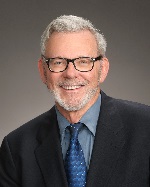
Randall Hagar
Legislative Advocate
Psychiatric Physician's Alliance of California (PPAC)
Coming to the streets near you. Mobile crisis response. A very simple concept. You are in crisis because of a mental condition. You pick up the phone. You connect with a person trained to help you. You get the help you need, even if it means that someone is dispatched to your doorstep to help you. Simply put. But, politics always makes things more complicated. Like moving AB 988 forward. AB 988 proposed 9-8-8 as a clinical alternative to a 9-1-1 law enforcement response. Based on a new federal statute, AB 988’s tortured path through the legislature in 2021 was unusual even in an environment that specializes in unexpected events. Ultimately, AB 988 died, held in committee. That does not mean that the concept of alternative crisis response isn’t valid, nor that the legislature didn’t recognize the need for ACR. And, while this project (AB 988) is dead, it doesn’t mean that the work to establish an ACR doesn’t go forward. Instead of a policy bill, the work continues within the state budget.
Rising from the dead. After AB 988 died. The administration of Governor Gavin Newsom appropriated $20 million in July 2021 to expand the current network of suicide prevention lifelines, retraining, and expanding the workforce of 13 current call centers, to meet an expanded continuum of expected demands for assistance when a 9-8-8 number was established. This would be the beating heart of a new 9-8-8 ACR system. Then, in October 2021, the state released the first of its Behavioral Health Continuum Infrastructure Program grants (authorized in the 2021-2022 budget negotiated with the legislature) to counties. Less than the $205 million was appropriated in phase one of the BHCIP was awarded (a second round for the unallocated remainder is now in process) for county mobile crisis response projects. This means robust networks of teams in local communities are being established as you read this.
Finally. In the Administration’s 2022-2023 budget summary there is a proposal (the legislature must approve) for a new 5-year, $1.4 billion Medi-Cal benefit (authorized by the federal government) for mobile crisis response services. This means crisis response hours are billable for the clinicians, or clinically supervised individuals, dispatched to a street corner or home or other location, to intervene in and hopefully ameliorate a mental health crisis. Funding like this is an incentive to build out the system, though only Medi-Cal beneficiaries, qualify – a great help to homeless populations. The administration says it is committed to finding ways to assure privately insured individuals receive the services and the services are paid for. For that health service plans are being teed up. It’s a silver lining for a pandemic-stricken population whose mental health needs have grown and for some will spill over into crisis. AB 988 may be dead, but ACR is alive and well.
Moving on. Switching gears to managed care. It’s tempting to think that a single payor health care system (government operated) offers a solution to health insurers and health service plans grinding away at your practice with administrative requirements. Single payor, AB 1400 (Kalra) is now a moot issue for 2022. It died ignominiously on the California Assembly floor on January 31. With no vote being taken. January 31 was do-or-die day for lingering 2021 bills. Not moving on to the second house pulled the plug on life support for AB 1400. And it was on life support.
Couple of observations.
Political will. The political will to move AB 1400 forward was lacking. The author said clearly, he lacked votes. In the 80-member Assembly 41 votes are typically necessary to move a bill forward. The vote count in support of AB 1400 was in the 28-30 range, a lack of 11-13 votes. A dozen or so votes to shift into the yes column is daunting particularly late in the afternoon of the last day allowed to move 2021 bills. With the magic 41-vote threshold unobtainable, Assemblymember Kalra declined to bring AB 1400 up for a vote. Rendering it dead.
Breakdown. Clearly a progressive priority, moderate democrats and all republicans lined up against it. As well, most health providers including physicians and hospitals opposed it. So did the health plans and insurers, who would be put out of business by it. Nurses sponsored the bill so not all segments of the health care industry aligned. But, Governor Newsom, after a campaign promise to support single payor, had been unsupportive in his remarks in the weeks leading up to the final non-vote. Clearly, a cohesive coalition to push single payor never emerged.
Will another bill emerge in 2022? Previous single payor bills in California - SB 840 (Kuehl, 2007), SB 840 (Kuehl, 2005), and SB 562 (Lara, 2017) – failed for various reasons, among them significant cost variously estimated to be around $350 billion annually. Doesn’t mean another bill couldn’t be introduced, but probably not by Assemblymember Kalra. Reports are that the sponsors are really steamed that their author failed to bring AB 1400 to a vote.
